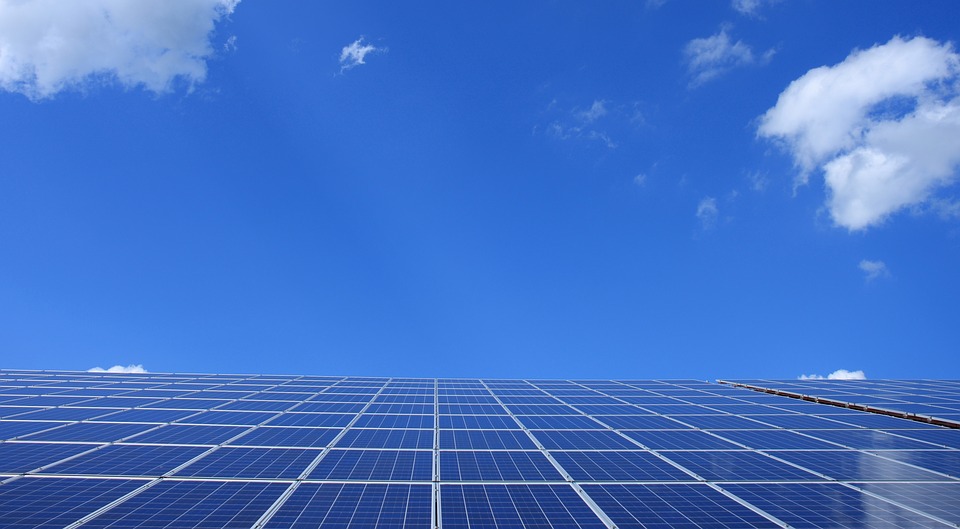State Trails Most In Renewable Energy
Just 10 mostly southern states are doing less. Wisconsin also has more expensive electricity.
While Wisconsin has made some progress in recent years, with utilities turning more to solar and wind power, this state is still far behind the nation — and most states — in adopting these renewable energy sources.
A new analysis by the Texas-based website Choose Energy, based on data from June of this year, shows that Wisconsin ranks very low in the percent of energy it gets from wind power, with just 1.6% compared to 7% for the nation. And Wisconsin ranks equally bad in the percent of its energy coming from solar power, at just 1%, versus 4.5% for the nation.
But the state looks even worse when you look at wind and solar power combined, which accounts for 2.6% of energy in Wisconsin. Just 10 states have a lower percent of their energy coming from solar and wind power. Seven are southern states with 1% or less of their energy coming from solar and wind power. The new slogan for Wisconsin’s energy profile might be “Better than Mississippi and Alabama.”
Wisconsin is far behind its neighboring midwestern states in the percent of energy coming from solar and wind, with Iowa leading at 41.8%, followed by Minnesota (21.8%), Illinois (8.2%) and Michigan (6.4%). These four states are getting two-and-a-half to 16 times more of their energy from solar and wind than Wisconsin.
And Wisconsin is more dependent on coal than all but 10 states, with more than 41% of its electric power generated by burning coal.
Why is Wisconsin so far behind? A key factor was eight years of leadership by Republican Gov. Scott Walker, who opposed renewables and under whom the state was spending more than $12 billion annually to import coal and gas. And while Democratic Gov. Tony Evers supports renewables, he faces a Republican Legislature that remains indifferent to hostile in its attitude toward solar and wind power.
Finally the leadership of the state’s utilities, led by We Energies in Milwaukee, has been slow to embrace renewables, due to prior investments in coal power plants. As Sierra Club member Susan Modder has written: “Through its subsidiaries, We Energies and Wisconsin Public Service (WPS), WEC is deeply invested in two of the dirtiest and most uneconomic plants still operating in Wisconsin today — the South Oak Creek and Columbia coal-burning power plants.”
Is We Energies saving its customers money by doing this? Not really, the Sierra Club contends: According to a 2019 analysis by the group, We Energies customers were continuing to pay millions of dollars to keep uneconomical coal plants running. Between 2014 and 2018 the South Oak Creek plant alone cost customers $75 million per year more than if the utility had just bought energy from the open market.
When asked why We Energies hasn’t moved faster to close its coal plants, company spokesman Brendan Conway noted that the company had moved from getting 73% of its power from coal in 2005 to 36% in 2020, though that has mostly involved a switch to a less polluting fossil fuel, natural gas. As of 2020 just 6% of the company’s power comes from renewables, his figures show. The figures also show the company plans to hit 39% renewables by 2030 and to be 100% carbon neutral by 2050, which Conway called “some of the most aggressive near-term emission reduction goals in the utility industry.”
That might help explain why Wisconsin’s electricity rates are so much higher than the national average. Choose Energy’s most recent analysis found that Wisconsin’s average price for electricity was 14.69 per kilowatt hour, considerably higher than the national average of 13.85 per kilowatt hour. Wisconsin’s average rate was higher than in 37 other states.
Which suggests we are getting the worst of all possible worlds: paying more to get less renewables and more pollution.
If you think stories like this are important, become a member of Urban Milwaukee and help support real, independent journalism. Plus you get some cool added benefits.
Murphy's Law
-
Top Health Care Exec Paid $25.7 Million
 Dec 16th, 2025 by Bruce Murphy
Dec 16th, 2025 by Bruce Murphy
-
Milwaukee Mayor’s Power in Decline?
 Dec 10th, 2025 by Bruce Murphy
Dec 10th, 2025 by Bruce Murphy
-
Total Cost of Foxconn Is Rising
 Dec 8th, 2025 by Bruce Murphy
Dec 8th, 2025 by Bruce Murphy























As long as you keep exposing WE, I’ll keep renewing my Urban Milwaukee membership. One good turn deserves another.
“Renewable” energy is not the gold standard; “clean” energy is. For example, a massive hydroelectric dam would qualify as renewable, even if it destroys a river ecosystem.
In Wisconsin, the for-profit utilities (regional monopolies) have far too much influence and through regulatory capture have dominated the Public Service Commission, which is supposed to serve the public interest. The resulting regulatory system disincentivizes distributed solar (rooftop solar), because the last thing these greedy utilities want is the citizenry becoming their own little power plants. Never mind that human and planetary survival literally depends on this becoming ubiquitous.